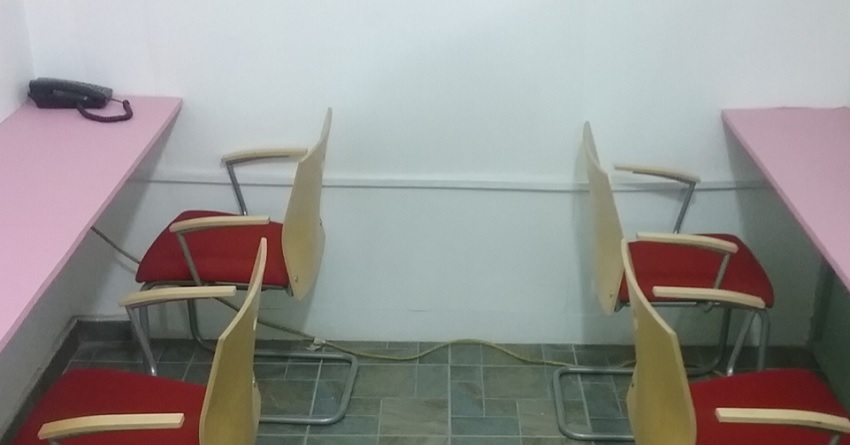Kumasi is Ghana’s second city, with a population of 4.7 million. It is also home to the renowned Kwame Nkrumah University of Science and Technology (KNUST), as well as a host of other technology institutions.
Despite this, the local tech startup scene is small. Kumasi actually hosted Ghana’s first ICT hub, mFriday, started by KNUST students in 2011. Yet focused primarily on students, it struggled to gain traction in the wider community.
No other hubs have sprung up, primarily due to the high rental costs that plight many West African cities. In Kumasi, and other major cities in Ghana, the norm is to pay between five and 10 years rent upfront depending on the size of the space, prohibitive to startups and incubators alike.
It was this realisation that inspired Kumasi-based IT company Hapaweb Solutions to launch hapaSpace last month. hapaSpace is a co-working space in the heart of Kumasi’s business centre.
Co-founder Albert Opoku told Disrupt Africa the idea for hapaSpace was born at a time when Hapaweb was considering moving to the centre of town in order to be more accessible to its clients, but could not afford the rent. Splitting costs among a community, however, was sustainable.
Aside from allowing Hapaweb to have a home in the centre of town, Opoku says the new co-working space will also play a part in helping develop Kumasi’s local tech startup ecosystem.
“At the moment, Kumasi does not have a structured tech or entrepreneurial community,” he said.
“Our vision is to use hapaSpace as the centre of building a tech and entrepreneurial community in Kumasi. Our goal is to have 50 startups in the hub by the end of 2017, these will be the foundation for a much larger community engagement.”
Opoku says the team is working hard to make hapaSpace the go-to place for tech and entrepreneurship in Kumasi, with people finding inspiration and networking opportunities at the space.
The co working space has office spaces for individuals and teams of two and four, as well as a meeting room, an eating area and a training and events space.
The goal, according to Opoku, is to do more than provide simply a space in which entrepreneurs can work, but to build a physical community that provides IT startups, SMEs, entrepreneurs and social enterprises with the relevant education, training and mentorship opportunities that are key to helping ideas and prototypes become viable products and services.
Getting the project off the ground took time, with Opoku initially sending the word out in September 2014.
“After this announcement, a community gradually grew around the idea of setting up Kumasi’s first co-working space,” he says.
“After a number of meet-ups at the British Council with interested startups, entrepreneurs and SMEs, 11 of them signed up to join the co-working space when it opened. The biggest challenge was raising the funds needed to pay the required minimum five years rent, furnishing the space and paying for good internet service within the community’s preferred location of Adum – the central business district of Kumasi.”
Hapaweb itself funded the pilot of the space, having raised funds from two large contracts from Google Ghana and the British Council in mid-2015.
“After months of searching, we found a landlord who was willing to accept two years advance rent for an uncompleted part of his building,” Opoku said.
“As a tech company we are confident in the ability of technology to solve a number of the challenges faced by the people living in Kumasi. Yet we strongly believe that technology should be used to sustain and expand on social change.”


